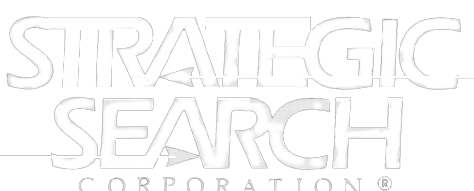Artificial Intelligence (AI) jobs recruiting is accelerating rapidly with many more open jobs available than there are qualified candidates to fill them. This is particularly true for AI software engineers.
This was confirmed during my recent appearance on CBS Radio affiliate WBBM News Radio 780 on Thursday, September 12, 2019. Please click here to listen to my segment in its entirety.
The demand for software developers in all categories is literally skyrocketing as companies across many industries aim to become software driven. Software developer jobs will grow 24 percent between 2016 and 2026 according to the US Bureau of Labor and Statistics. This is a much faster pace than the average rate for most other professions and the hiring demand is even greater for AI engineering jobs.
Thus engineering candidates have a lot of power today when considering this recruiting growth demand. Hiring the right artificial intelligence talent is indeed challenging.
The job choice for engineers frequently comes down to one question, “Do I want to solve your engineering problems and work with your people?”
So what can you do to appeal to candidates with strong AI engineering skills? Here are my five tips for improving your recruiting efforts for AI engineers.
Tip 1 Develop An Artificial Intelligence Candidate Pipeline
The first step is taking a macro view of the AI engineering recruiting and hiring process and building a pipeline of viable candidates. This is where many artificial intelligence engineering employers tend to struggle the most.
As part of this process, employers should start by reviewing their branding and ensuring that they’ve positioned themselves as a viable place for engineers to work.
Next, identify viable areas to source candidates for that pipeline. This can include: a) identifying AI competitors b) uncovering viable engineering candidates within those artificial intelligence competitors c) contributing to AI blogs and magazines to get noticed by the engineering candidates you seek and d) connecting to LinkedIn candidates who may become future candidates.
You will have achieved the first step in the artificial intelligence engineering recruiting process once you have built a recruitment pipeline and you start the journey to convince a set of candidates to join your organization.
Tip 2 Artificial Intelligence Interviewing Assessment
Your next step is to decide how to assess AI engineer candidates. If you already have a strong AI engineering team you should include them in and have them lead the process.
Your staffing team needs to ask engineer candidates the right questions to best determine if they meet your hiring needs. That is the essence of several of my 12 Commandments of Recruiting steps, especially the first Commandment – the pie chart question.
Ask your candidates: “Please break down what you did on a regular basis by a pie chart illustration.”
For example, an AI electrical engineer may say they spent 60% of their time on Python programming, 30% on hardware design and 10% on documentation.
Repeat this question for any technical criteria that is important to your needs. Ask for example: “Now break down where you spent your time on hardware design (or Python programming).”
The benefit of the pie chart question is it forces candidates to more precisely identify what they actually did regularly. As a result, you will greatly streamline your AI engineering recruiting process and reduce your staffing errors.
Tip 3 Competitive Salaries Only Get You So Far
After you have successfully developed a candidate pipeline and your assessment process works, you must uncover what to offer to your potential AI engineering employees. Additionally, you need to discover creative ways to compete against the Google’s of the world for that top talent.
Engineering salaries are already so inflated in comparison to other roles that just offering a big paycheck can only get you so far.
What matters more than paycheck to candidates are: a) what problems will I help to solve at your company? and b) what will I learn as an engineer, including who will be my mentor and what technology will I work with?
You must research and understand what interesting problems your AI engineers will help solve and what their learning path is when they join your organization. This is your best means to compete against giants such as Google for artificial intelligence engineering talent. This is based on our research spanning over 10 years of recruiting AI engineers worldwide.
Tip 4 How and when to hire remote workers
You’ve developed a pipeline and your assessment process. In addition you have uncovered what appeals to your candidates. You should then consider the concept of building a decentralized team. This concept is becoming more appealing as technologies such as videoconferencing better enables working remotely.
For example, an employer in San Francisco will very quickly exhaust its pool of AI engineering candidates. Therefore, they really need to consider remote employment options.
However, employers must really know how their remote team members will work with their team before committing to building decentralized teams.
Will team members be expected to come into the office? If so, how frequently? What communication platforms will they use? Is the majority of the team located in the office or are they remote?
It is crucial to know who you want on the team once you’ve made conscious decisions about how your remote engineers will work together. You need to effectively assess their communication skills in addition to assessing their pure engineering skills.
How clearly they can communicate and collaborate is extremely important. You need a firm understanding as to who does what, when is it done and what their roles are on the team if you are open to a dispersed engineering team.
Our 30 years of placing engineering talent worldwide tells us that engineers generally prefer flexible work arrangements. Our research shows that the ability to work remotely with regular time in an office setting is correlated with high feelings of success among engineers.
If you go for a fully remote team, perhaps you should establish a set schedule in which the team can meet and learn to work together. It will actually impact the quality of their work going forward.
Tip 5 Assessing engineers with real-world challenges
Your pipeline and assessment process are formalized. You have uncovered your candidates’ desires and determined if you team will be decentralized.
Lastly, we find both employers and prospective employees are increasingly interested in a job application process that simulates what it’s like to actually work at a specific company. Gone are the days of simply testing skills in a university type setting.
Your potential engineering candidates will have a better experience if you can offer them a glimpse of what problems they would actually be solving when they join your team. Develop a method to introduce them to typical challenges they might face and then gauge their reactions. You will also get a better read on their skills as a result of their responses.
This sums up my five tips in elevating your AI Engineering recruiting efforts. Call me today at 312-944-4000 to discuss how we can assist with your R&D, engineering, scientific, technical, IT and manufacturing recruitment efforts in the highly competitive fields of Artificial Intelligence, Robotics, Internet of Things (IoT) as well as Virtual (and Augmented) Reality. Or click here for my full contact information.




